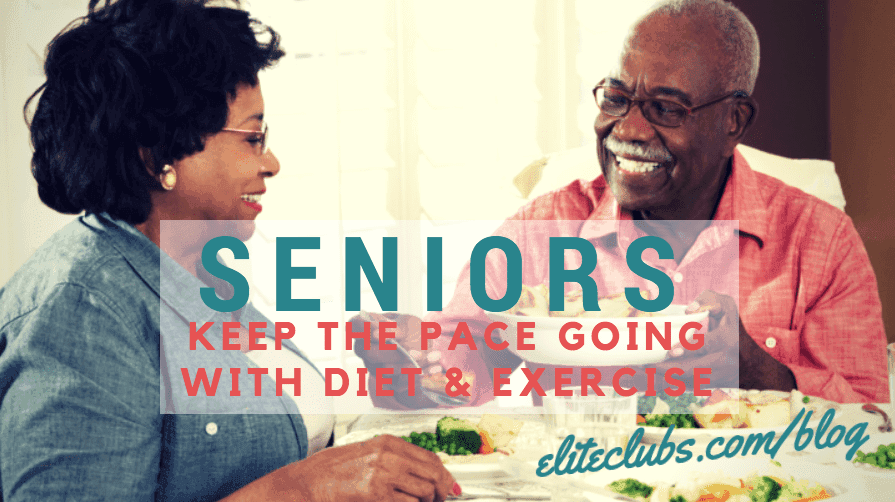
Being aware of what you eat and its overall importance to a healthy life is necessary at any age.
Often seniors will mention to me that, they “don’t really need much,” and that maybe they eat only once during the day. Today, research supports that food is necessary throughout the day for almost all of us to supply and nourish our bodies on a regular basis—whether we are young or old. The delicate balance between eating enough and not eating too much is important at all ages, especially for seniors. The same is true for your fitness and having a consistent pattern of going to the gym.
What are some of those concerns that Seniors simply can not ignore when it comes to eating a healthy diet? Here is the short list:
Maintaining a healthy body weight is important at any age.
However, making sure that you do not gain weight and avoid being overweight can be critical for Seniors because many illnesses are linked to body weight. Maintaining a healthy immune system also can require eating a balanced, nutritionally sound diet. The Geriatric Research Education and Clinical Center in Virginia, says people need to evaluate how and what they are eating at the start of every decade of life.
Dropping calorie intake is usually necessary because people are moving around less, have less muscle, and their metabolic rates decline.
People who have a difficult time losing weight in their 50’s or older may be basing their calorie needs that were appropriate for younger people. None-the-less, the good news is that at this time people are often aware of a drop in their appetites and the transition to eating a little less is not that difficult.
Seniors should focus on choosing compact or denser nutritious foods if they plan on eating less.
Older bodies still require similar amounts of protein, vitamins, and minerals as younger ones, but older men and women may balance that need with the need to eat less calories. Consuming more fruits, vegetables, and lean meats sources, including beans and choosing whole grains over refined starchy foods can be the key.
Watching what you drink is also important.
Soda, sugared or not, are never going to be a good idea because they are packed with calories that are not needed. Choose unsweetened beverages and opt for water when possible. Always drink as much fluid as you need to avoid being dehydrated—which is harder to detect as a Senior. Many Seniors are also taking medications for high blood pressure with diuretics, helping to remove circulating fluids and, those need to be replaced.
Senior Citizens today should be able to continue with your daily exercise routine.
Healthy eating paired with moderate exercise remains one of the the best combinations for healthy weight loss. Cardiovascular exercise are good for getting the heart pumping and stimulating the metabolic rate. In addition, seniors should try to include strength training and weight-bearing exercise. Muscle mass may diminish over the years, but today researchers do not believe that it is absolutely necessary to happen if this type of fitness is a part of your regular workout routine. Strength training will also have the added advantage of helping to strengthen bones, and therefore help to avoid falls and fractures. As Seniors gain muscle mass their bodies will burn calories more effectively too.
Apart from diet and exercise, aging adults need to stay in contact with doctors or nutritionists about the need for nutritional supplements.
Some of these additions are because some body processes may become more difficult as we age, and therefore will need supplementation.
- B12 for increased absorption
- vitamin D for transforming sunlight to vitamin
- Improved ability to absorb calcium
Routine blood work can help to pinpoint any of these deficiencies.
Truly, the need for keeping up with your health throughout your life is absolutely necessary to keep going for years to come. For questions, please contact Rita Larsen, RDN.
Written by Rita Larsen, RDN, CD; Elite Sports Clubs Nutrition Educator & Diet Counselor
Rita is certified in Positive Psychology, University of Penn; has a BS in Dietetics from Kansas State University; and an Internship and Masters at the Indiana University Medical Center.
Schedule a Nutrition Consultation